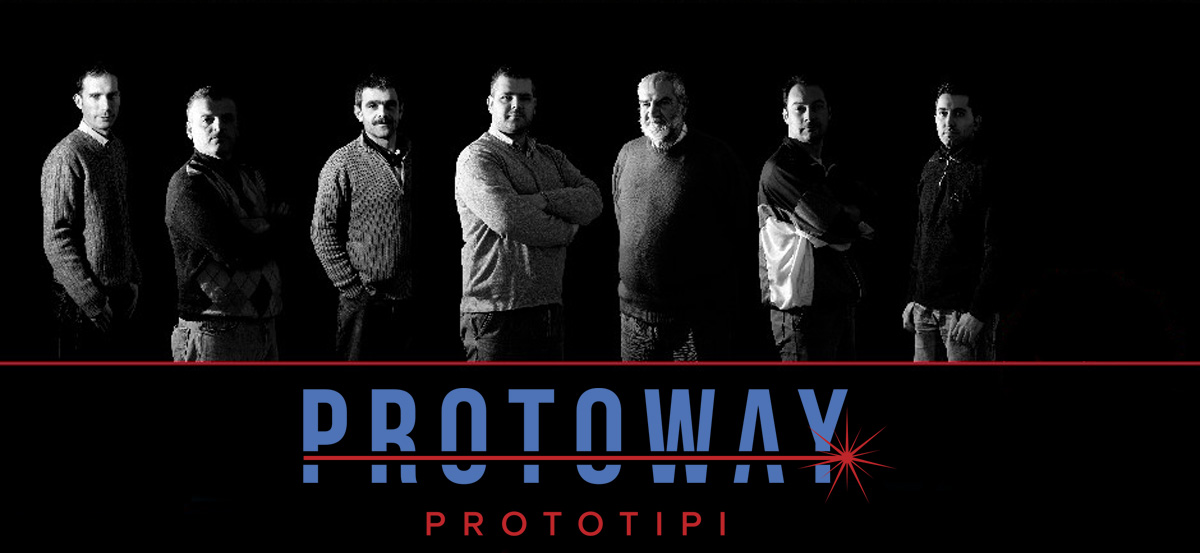Why choose Protoway
Protoway differs from many other prototyping services thanks to the traditional modeling department. The staff of our modeling shop is highly specialized, since 1990 it has been dedicated to the manual construction of prototypes. This is our main department and the most important as it is here that our prototypes come to life. From the sinter to the stereolithography, from the thermoforming machine to the 3D printing, normal plastic and resin pieces come out as all the services now know: these become prototypes when, in the hands of our model makers, they are checked, finished and made compliant with the specifications requested by the customer. (e.g. waterproofing, strengthening, carbon or kevlar coatings, metal inserts applications, etc.)
In the case of complex prototypes, where some parts are made with different technologies (CNC milled, sintered, thermoformed, or rubber parts for example) it is clear that without our modeling department it would be impossible to assemble, verify heterogeneous parts in their together, and aesthetically pack the finished product, perhaps ready for a fair. Grouting, painting, fiberglass, gluing, wood and plastic processing are techniques acquired for years and now taken for granted.
Mission
Protoway offers a complete prototyping service, based on product quality and on-time delivery, based on the skills and experience of the staff, on modern technologies, on the research of methods and materials, on the proven competence and reliability of its partnerships.

Business Team
“The founder and owner ing. Alessandro Mineo (management engineering with specialization on materials) pours into the company all the experience acquired in his career, from injection molding of thermoplastics, to quality control and production process through statistical processing, to complete and total production of prototypes: from repairing 3d files to programming production activities, involving sintering, mechanical processing, DIY, vacuum casting, painting, investment casting and anything else necessary to achieve the finished product. The continuous contact with the customer, the exchange of technical information and commercial relations, perpetrated in various sectors such as household appliances, telephony, automotive, furniture, optics, electromechanics, sporting goods, medical, design and planning studios, have led to a wide-ranging knowledge in the prototype field. The numerous courses followed to refine and improve management skills (marketing, production control, human resources management) are flanked by the more strictly technical ones (CAD, mold construction and vacuum casting, investment casting, safety at work). “


